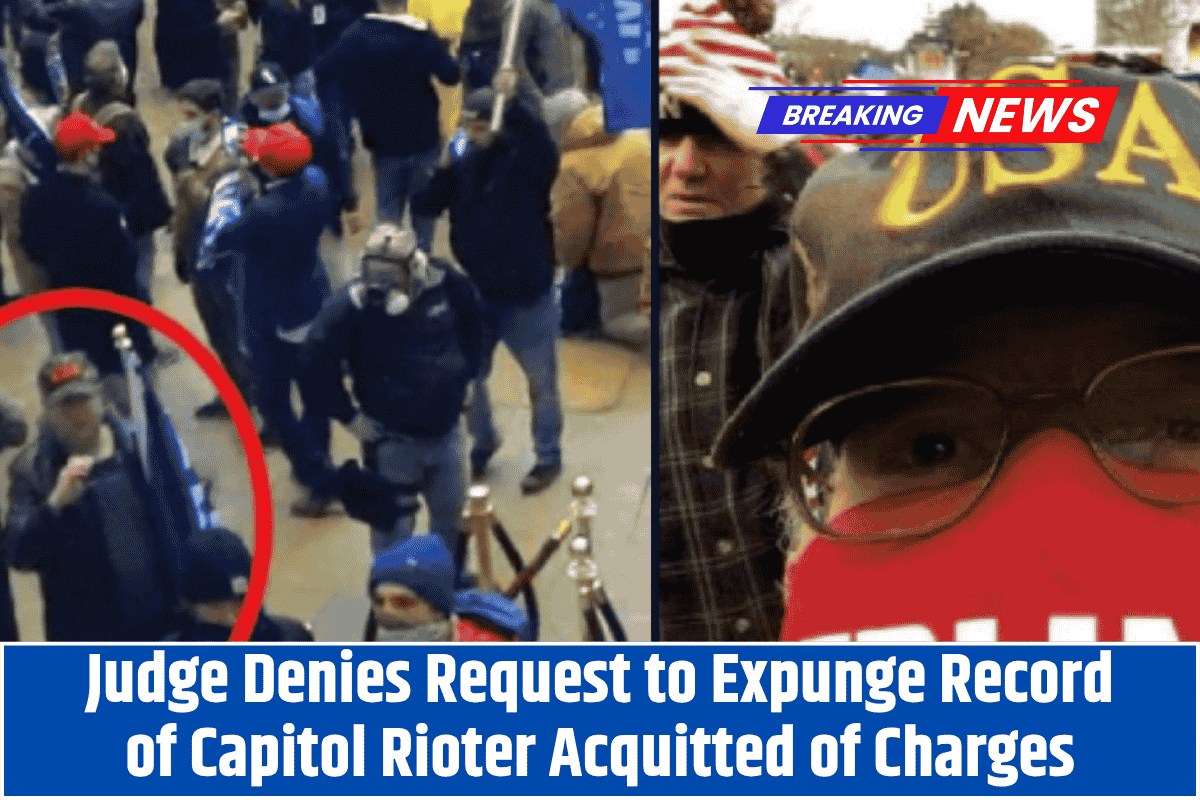A New Mexico man who was cleared of charges related to the January 6 Capitol riot will not have his criminal record expunged, according to a ruling by U.S. District Judge Trevor McFadden in Washington, D.C.
On July 15, McFadden rejected the request from Matthew Martin, who had referred to the riot as a “magical day,” to erase the record of his arrest and trial.
The Ruling and Legal Reasoning
Despite being fully acquitted of multiple misdemeanors in connection with the Capitol attack, Martin’s request for expungement was denied.
Judge McFadden, who was appointed by President Donald Trump, explained in his nine-page ruling that federal appeals courts require individuals to demonstrate evidence of a violation of their constitutional or statutory rights before a district court can even consider expunging their records. In Martin’s case, McFadden found that no such violation was alleged.
Martin had argued that his FBI background check was now “inaccurate and prejudicial”, and that he was wrongfully affected by the public nature of his case.
He claimed that the high-profile nature of the January 6th events made his record an unfair burden, but Judge McFadden disagreed, finding that Martin did not meet the legal threshold required for expungement.
“In sum, Martin has not attempted to show a statutory or constitutional violation during his arrest, trial, or conviction,” McFadden wrote, denying the motion.
The Background of the Case
Martin was acquitted in April 2022 of charges that included entering a restricted building and disorderly conduct during the Capitol riot. The case centered around Martin’s actions at the Capitol building, where he entered the Rotunda after police allowed him inside.
Prosecutors argued that Martin passed multiple warnings before entering the building, including closed signs, police cars, and smashed windows. However, McFadden found that federal prosecutors failed to prove the “requisite scienter” (knowledge or intent) required for the charges.
The judge also noted that Martin’s conduct was minimal, with no evidence of violence or direct interference with police officers inside the building. McFadden said that Martin’s belief that he had permission to enter was “plausible”, as the police officers did not attempt to stop him.
Martin’s Unapologetic Attitude
During the trial, Martin described the January 6 events as “magical” and expressed no regrets about attending the pro-Trump rally in Washington, D.C. He had communicated with his supervisor after the riot, boasting that “you can’t overrun the capital building” and claiming that the security was insufficient.
Despite his acquittal, Martin remained unapologetic for his actions and stated that he did not view his participation in the riot as a mistake.
The Denial of Expungement
While Martin was not convicted of the crimes, Judge McFadden emphasized that the case was more about whether he could provide evidence of wrongdoing or constitutional violations, not whether he was guilty or not guilty.
The judge’s decision to deny expungement aligns with the precedent set by previous legal cases, which require evidence of harm or a violation of rights before expungement can be granted.
Martin’s acquittal on the charges remains significant, as he was the first Capitol rioter to be fully acquitted in relation to the January 6 attacks.






